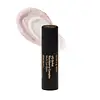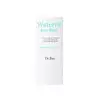What's inside
What's inside
 Key Ingredients
Key Ingredients

 Benefits
Benefits

 Concerns
Concerns

 Ingredients Side-by-side
Ingredients Side-by-side

Cetyl Ethylhexanoate
EmollientMethyl Methacrylate Crosspolymer
Butylene Glycol Dicaprylate/Dicaprate
EmollientSynthetic Wax
AbrasiveVinyl Dimethicone/Methicone Silsesquioxane Crosspolymer
Isopropyl Palmitate
EmollientDicaprylyl Carbonate
EmollientButyloctyl Salicylate
Skin ConditioningDiethylamino Hydroxybenzoyl Hexyl Benzoate
UV FilterEthylhexyl Triazone
UV AbsorberTocopheryl Acetate
AntioxidantPolysilicone-15
UV FilterBis-Ethylhexyloxyphenol Methoxyphenyl Triazine
Skin ConditioningVinyldimethicone
Ozokerite
Emulsion StabilisingRubus Idaeus Extract
Skin ProtectingSimmondsia Chinensis Seed Oil
EmollientLotus Corniculatus Flower Water
MaskingBisabolol
MaskingTitanium Dioxide
Cosmetic ColorantWater
Skin ConditioningGlyceryl Caprylate
EmollientCaprylyl Glycol
EmollientPolyglyceryl-4 Diisostearate/Polyhydroxystearate/Sebacate
EmulsifyingButylene Glycol
HumectantPolyglyceryl-6 Polyricinoleate
EmulsifyingCoco-Caprylate/Caprate
EmollientEthylhexylglycerin
Skin ConditioningPolyhydroxystearic Acid
EmulsifyingTriethoxycaprylylsilane
1,2-Hexanediol
Skin ConditioningAluminum Hydroxide
EmollientTocopherol
AntioxidantUltramarines
CI 77491
Cosmetic ColorantCetyl Ethylhexanoate, Methyl Methacrylate Crosspolymer, Butylene Glycol Dicaprylate/Dicaprate, Synthetic Wax, Vinyl Dimethicone/Methicone Silsesquioxane Crosspolymer, Isopropyl Palmitate, Dicaprylyl Carbonate, Butyloctyl Salicylate, Diethylamino Hydroxybenzoyl Hexyl Benzoate, Ethylhexyl Triazone, Tocopheryl Acetate, Polysilicone-15, Bis-Ethylhexyloxyphenol Methoxyphenyl Triazine, Vinyldimethicone, Ozokerite, Rubus Idaeus Extract, Simmondsia Chinensis Seed Oil, Lotus Corniculatus Flower Water, Bisabolol, Titanium Dioxide, Water, Glyceryl Caprylate, Caprylyl Glycol, Polyglyceryl-4 Diisostearate/Polyhydroxystearate/Sebacate, Butylene Glycol, Polyglyceryl-6 Polyricinoleate, Coco-Caprylate/Caprate, Ethylhexylglycerin, Polyhydroxystearic Acid, Triethoxycaprylylsilane, 1,2-Hexanediol, Aluminum Hydroxide, Tocopherol, Ultramarines, CI 77491
Synthetic Wax
AbrasiveC12-15 Alkyl Benzoate
AntimicrobialVinyl Dimethicone/Methicone Silsesquioxane Crosspolymer
Ethylhexyl Palmitate
EmollientPropylheptyl Caprylate
EmollientTitanium Dioxide
Cosmetic ColorantIsopropyl Palmitate
EmollientMethyl Methacrylate Crosspolymer
Butyloctyl Salicylate
Skin ConditioningSynthetic Fluorphlogopite
Polymethylsilsesquioxane
Diethylhexyl 2,6-Naphthalate
EmollientOzokerite
Emulsion StabilisingVinyldimethicone
Aluminum Stearate
Cosmetic ColorantHydroxystearic Acid
CleansingMentha Aquatica Leaf Extract
Skin ConditioningMelaleuca Alternifolia Flower/Leaf/Stem Extract
Skin ConditioningChamaecyparis Obtusa Leaf Extract
Skin ConditioningBambusa Vulgaris Shoot Extract
AntioxidantBambusa Vulgaris Leaf/Stem Extract
HumectantBrassica Oleracea Italica Extract
AstringentBambusa Vulgaris Water
Skin ConditioningCaprylic/Capric Triglyceride
MaskingCaprylyl Glycol
EmollientAlumina
AbrasivePolyglyceryl-4 Diisostearate/Polyhydroxystearate/Sebacate
EmulsifyingTriethoxycaprylylsilane
Stearic Acid
CleansingWater
Skin ConditioningButylene Glycol
Humectant1,2-Hexanediol
Skin ConditioningSynthetic Wax, C12-15 Alkyl Benzoate, Vinyl Dimethicone/Methicone Silsesquioxane Crosspolymer, Ethylhexyl Palmitate, Propylheptyl Caprylate, Titanium Dioxide, Isopropyl Palmitate, Methyl Methacrylate Crosspolymer, Butyloctyl Salicylate, Synthetic Fluorphlogopite, Polymethylsilsesquioxane, Diethylhexyl 2,6-Naphthalate, Ozokerite, Vinyldimethicone, Aluminum Stearate, Hydroxystearic Acid, Mentha Aquatica Leaf Extract, Melaleuca Alternifolia Flower/Leaf/Stem Extract, Chamaecyparis Obtusa Leaf Extract, Bambusa Vulgaris Shoot Extract, Bambusa Vulgaris Leaf/Stem Extract, Brassica Oleracea Italica Extract, Bambusa Vulgaris Water, Caprylic/Capric Triglyceride, Caprylyl Glycol, Alumina, Polyglyceryl-4 Diisostearate/Polyhydroxystearate/Sebacate, Triethoxycaprylylsilane, Stearic Acid, Water, Butylene Glycol, 1,2-Hexanediol
Ingredients Explained
These ingredients are found in both products.
Ingredients higher up in an ingredient list are typically present in a larger amount.
1,2-Hexanediol is a synthetic liquid and another multi-functional powerhouse.
It is a:
- Humectant, drawing moisture into the skin
- Emollient, helping to soften skin
- Solvent, dispersing and stabilizing formulas
- Preservative booster, enhancing the antimicrobial activity of other preservatives
Butylene Glycol (or BG) is used within cosmetic products for a few different reasons:
Overall, Butylene Glycol is a safe and well-rounded ingredient that works well with other ingredients.
Though this ingredient works well with most skin types, some people with sensitive skin may experience a reaction such as allergic rashes, closed comedones, or itchiness.
Learn more about Butylene GlycolButyloctyl Salicylate is a chemical UV filter structurally similar to octisalate. It is a photostabilizer, SPF booster, emollient and solvent. This ingredient helps evenly spread out ingredients.
According to a manufacturer, it is suitable for pairing with micro Titanium Dioxide, Zinc Oxide, and pigments.
Photostabilizers help stabilize UV-filters and prevents them from degrading quickly.
Learn more about Butyloctyl SalicylateCaprylyl Glycol is a humectant and emollient, meaning it attracts and preserves moisture.
It is a common ingredient in many products, especially those designed to hydrate skin. The primary benefits are retaining moisture, skin softening, and promoting a healthy skin barrier.
Though Caprylyl Glycol is an alcohol derived from fatty acids, it is not the kind that can dry out skin.
This ingredient is also used as a preservative to extend the life of products. It has slight antimicrobial properties.
Learn more about Caprylyl GlycolIsopropyl Palmitate is a texture enhancer and emollient. It is an ester of isopropyl alcohol and palmitic acid.
Palmitates are emollients. Emollients help keep your skin soft and smooth by creating a barrier that traps moisture in.
When added to cosmetics, Isopropyl Palmitate creates a silky texture and improves spreadability.
Isopropyl Palmitate may not be fungal acne safe. It can worsen acne prone skin.
Learn more about Isopropyl PalmitateThis ingredient comes as a powder made up of small, porous, microbeads. It is used to add a silky feel to products and also helps absorb oil.
Ozokerite is a naturally occuring mineral wax. In cosmetics, ozokerite is used as a texture enhancer.
Ceresin wax is derived from this ingredient.
The melting point of ozokerite is 58-100 C.
Ozokerite is found all over the world including Scotland, the US, and India.
Learn more about OzokeritePolyglyceryl-4 Diisostearate/Polyhydroxystearate/Sebacate isn't fungal acne safe.
Synthetic Wax is created from fossil fuels such as natural gas. It is used to enhance texture, adjust pH, and as an occlusive.
It may also be used as an abrasive ingredient to exfoliate the skin.
Synthetic Wax may not be fungal acne safe.
Learn more about Synthetic WaxTitanium dioxide is a mineral UV filter widely used in sunscreens and cosmetics.
It is one of only two UV filters officially classified as “mineral” by regulatory agencies, the other being zinc oxide.
Titanium dioxide provides broad-spectrum protection mostly in the UVB and UVAII range, with some protection in the UVAI range.
While its UVA protection isn’t as strong as zinc oxide’s, the difference is minor.
A common myth is that mineral UV filters reflect UV light. However, modern research shows titanium dioxide absorbs UV radiation like chemical filters (~95% absorption & 5% reflection).
Thanks to its non-irritating nature, titanium dioxide is suitable for sensitive, acne-prone, or redness-prone skin. It is unlikely to cause "eye sting" like other sunscreen ingredients.
A major drawback of this ingredient is its white cast and thick texture. This is why mineral sunscreens often leave a white cast and are less cosmetically elegant than chemical/hybrid sunscreens.
To improve white cast and spreadability, micronized or nano-sized titanium dioxide is often used.
There are ongoing concerns surrounding nano-titanium oxide's impact on marine ecosystems.
There is no conclusive evidence that any form of titanium oxide (or any other sunscreen ingredients) will cause harm to marine ecosystems or coral reefs. The science is still developing but many consumers are keeping a close eye on this issue.
Please note, many destinations have reef-safety sunscreen rules. For instance, the U.S. Virgin Islands advises all visitors to use non-nano mineral sunscreens.
Nano mineral sunscreens once raised safety concerns about absorption into skin.
Extensive research has shown that they do not penetrate healthy or damaged skin; they remain safely on the surface and the top layer of dead skin (stratum corneum).
You'll likely find titanium dioxide bundled with alumina, silica, or dimethicone. These ingredients help make titanium dioxide highly photostable; this prevents it from interacting with other formula components under UV light.
Learn more about Titanium DioxideTriethoxycaprylylsilane is a silicone used to bind and stabilize ingredients.
As an emulsifier, it helps prevent ingredients from separating. This can help elongate the shelf life of products.
Triethoxycaprylylsilane is often used to coat mineral sunscreens ingredients to help give a better feel. It also helps reduce oxidative stress in sunscreens.
Learn more about TriethoxycaprylylsilaneThis ingredient is used in makeup and skincare to thicken formulas, reduce shine, and give skin a silky-smooth feel.
It’s a white silicone powder that sits in fine lines and pores to blur their appearance though its effectiveness depends on the particle size.
You'll typically find this ingredient in amounts between 0.1-20%.
Learn more about Vinyl Dimethicone/Methicone Silsesquioxane CrosspolymerVinyldimethicone is a type of silicone.
Water. It's the most common cosmetic ingredient of all. You'll usually see it at the top of ingredient lists, meaning that it makes up the largest part of the product.
So why is it so popular? Water most often acts as a solvent - this means that it helps dissolve other ingredients into the formulation.
You'll also recognize water as that liquid we all need to stay alive. If you see this, drink a glass of water. Stay hydrated!
Learn more about Water